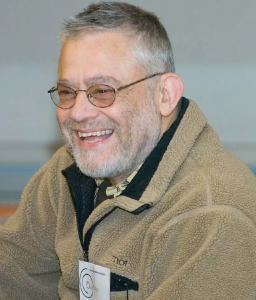The Conscious Turing Machine (CTM): A Theoretical CS Approach to the Hard Problem
The Easy and Hard Problems of consciousness (David Chalmers, 1995) can be defined as follows:
The Easy Problem: Make a robot that simulates feelings.
The Hard Problem: Make a robot that truly experiences feelings.
This talk outlines a Theoretical Computer Science (TCS) approach to solving the hard problem. This means it formalizes a variant of Bernard Baars’ Global Workspace Theory (GWT) and Changeaux, Dehaene, Mashour’s Global Neuronal Workspace Theory (GNWT), and introduces the importance of complexity for approaching if not solving the hard problem.
A major contribution of this talk lies in the definition of a Conscious Turing Machine (CTM), including the precise formal definition of the Competition among a humungous (≈ 10^8) number of unconscious parallel processors for access to consciousness. We define the CTM in the spirit of Alan Turing’s simple yet powerful definition of a computer, the Turing Machine (TM). We are not looking for a complex model of the brain nor of cognition but for a simple model of the (admittedly complex) concept of consciousness.
After formally defining CTM, we give a formal definition of consciousness in CTM. We then suggest why the CTM has the feeling of consciousness. We argue that the CTM can experience - not just simulate - feelings of pain and pleasure. The reasonableness of the definitions and explanations can be judged by their agreement with commonly accepted intuitive concepts of human consciousness, the range of related concepts that the model explains easily and naturally, and the extent of its agreement with the scientific evidence.
Joint work with Lenore Blum.

